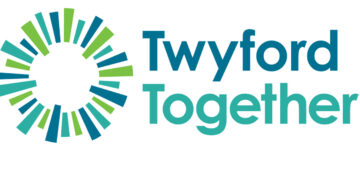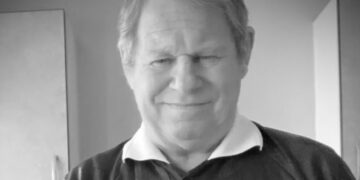By Louise Timlin
Three years ago, I started experiencing menopausal symptoms.
Though mild, they were concerning and impacting my life.
Brain fog meant I struggled to find words that had previously tripped off my tongue.
I told my team at work that if I paused mid-sentence, it didn’t mean I’d finished and not to interrupt me; I would carry on speaking as soon as I’d remembered the word I was looking for.
Around this time Diane Danzebrink, menopause campaginer (and all round goddess, in my opinion), came to Wokingham and ran a session for the public to educate us about menopause.
It was a real hallelujah moment – that’s what was wrong with me.
I shed a few tears of relief, I wasn’t going mad and I didn’t have early-onset dementia.
And then I got angry. I consider myself an educated and relatively well-read person.
I have a 30-year career in medical research. Why was my knowledge of menopause so shockingly bad?
Generations of women have suffered silently under the belief that menopause is a part of normal life and we should just put up with it.
We’ve been conditioned not to talk about menstruation or menopause. Yet symptoms can be highly debilitating and in some cases, where women are suffering severe anxiety and depression, it can be life-threatening.
Shockingly, menopause is not taught as a mandatory module at medical school and many GPs have no training in it, despite the fact that half the population will experience it.
World menopause day is held every year on October 18. It aims to raise awareness of menopause and to improve the health and well-being of women in mid-life and beyond.
Menopause is the last taboo.
It affects older women and therefore our awareness and understanding of the symptoms are impacted by both ageism and sexism.
A lack of medical training, awareness and information mean that women are not getting the support they need.
There are over 30 recognised symptoms of menopause including hot flushes, night sweats, insomnia and mood alterations.
A recent survey by the Fawcett Society revealed that 77% of women find at least one symptom “very difficult” and 69% experience anxiety and depression.
The National Institute for Health and Care Excellence guidelines are clear. Women with menopausal symptoms, including anxiety and depression should be offered HRT as first-line treatment.
Yet according to a recent Fawcett Society survey only 39% of women were offered HRT once their GP or nurse recognised their symptoms as menopausal.
Thirty per cent of women were offered antidepressants according to a study by Dr Louise Newson, despite there being no evidence to support their use.
Wokingham resident, Jane (not her real name), told me that it took multiple visits to her GP for her menopausal symptoms to be taken seriously, despite them having a severe impact on her ability to work.
When she was finally offered treatment, she was prescribed antidepressants.
She had to do her own research on the risk-benefit of HRT before being prescribed the right treatment.
Studies have shown that menopause symptoms greatly impact women’s careers and ability to work. According to the menopause and work survey by Dr Louise Newson, 21% did not go for a promotion they would otherwise have considered, 19% reduced their hours and 12% resigned.
The majority of workplaces offered no support for women going through the menopause.
Given the current staffing shortages in women-dominated industries such as the NHS and social care, this needs to be urgently addressed.
Health inequalities are rife in the UK. Healthy life expectancy between women in the most deprived area compared to the least deprived in England is currently estimated to be 19.7 years less (for men it is 18.4 years).
Despite this the government has scrapped its proposed White Paper on Health Inequalities. Equality in Health is one of The Women’s Equality Party’s core policies. https://www.womensequality.org.uk/equal_health Women’s health issues are under-researched and often dismissed as trivial. Women are four times more likely to be diagnosed with “medically unexplained symptoms” than men.
The Women’s Equality Party supports the introduction of legislation to protect women who need to take absences from work resulting from menopause symptoms, and supports the Make Menopause Matter campaign which calls for mandatory menopause training for all GPs and medical students, and menopause awareness and support in every workplace.
With the right policies, awareness, education and training, we can ensure that no more women will have to go through menopause alone, afraid and untreated.
Let’s take a stand and make this generation the one to end the myths and taboos of menopause.
Those experiencing menopausal symptoms can find help and information here: https://www.balance-menopause.com/and https://menopausesupport.co.uk/
Sign the petition to Make Menopause Matter here: https://www.change.org/p/make-menopause-matter-in-healthcare-the-workplace-and-education-makemenopausematter
Louise Timlin is the local branch lead of the Women’s Equality Party











































